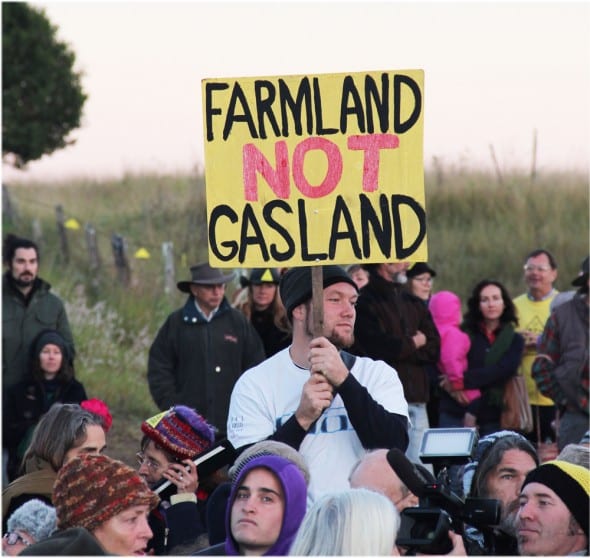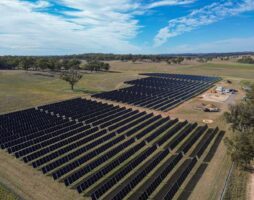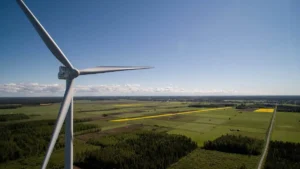
Energy policy is the issue to trump them all. We have already lost several Prime Ministers in its cause, and more will likely walk the plank before commonsense prevails. But the last few weeks have set new standards for national stupidity .
The political rhetoric grows ever more florid, starting with Prime Minister Malcolm Turnbull last October:
“Coal is going to be an important part of our energy mix, there is no question about that, for many, many, many decades to come, on any view”.
Just as he launched an independent review into the future security of the national energy market by Chief Scientist Alan Finkel; no pre-conceived ideas here.
Then, at the National Press Club on 1st February 2017:
“Old, high emissions coal-fired power plants are closing down, reducing baseload capacity. They cannot simply be replaced by gas –because it’s too expensive – or by wind and solar because they are intermittent.
Storage has a big role to play, but we will need more synchronous baseload power, and as the world’s largest coal exporter we have a vested interest in showing that we can provided both low emissions and reliable baseload power with state-of-the-art clean coal-fired technology.
The next incarnation of our energy policy should be technology agnostic – Policy should be ‘all of the above’, working together to deliver the trifecta of secure and affordable power while meeting our emission reduction commitments”
And to ram the point home:
”Those people who say coal and other fossil fuels have no future are delusional and they fly in the face of all of the economic forecasts”.
Simultaneously, former Resource Minister Matt Canavan was spruiking the benefits of Galilee Basin coal, initially in the shape of the Adani Carmichael Mine, subsidised with a cheap loan from NAIF; then domestic High Efficiency Low Emissions (HELE) power stations; and finally the full blown development of five or six Galilee Basin mega-mines in addition to Adani. All very technology agnostic.
Unfortunately, the independent reports commissioned by the government from Finkel and the Australian Energy Market Operator (AEMO), did not toe the party line.
The experts set out sensible steps to solve the problems of our energy market, with the electricity system moving toward increasing use of renewable energy and no need for additional investment in coal – the result being lower electricity prices and no energy crisis.
The pre-requisite is a sensible policy framework delivered by government; a big ask after two decades in which the abject failure of political leadership on these issues, from John Howard onwards, created the current mess.
Not to be diverted from the Minerals Council of Australia’s roadmap for a coal-based future, the government instantly twisted one AEMO recommendation, to establish a 1000MW flexible dispatchable reserve to maintain supply reliability in South Australia and Victoria over the coming summer, to claim we face a massive energy crisis.
In a mind-boggling non-sequitur, it is now using this lie to justified its attempt to force AGL to keep open the oldest, least efficient and dirtiest baseload coal–fired power station in Australia, at Liddell NSW, for a further five years after its planned 2022 closure date.
No one has apparently told the government that baseload coal-fired power is neither flexible nor dispatchable.
But the rhetoric soared: Matt Canavan assured us that “Renewables are just a short-term sugar hit”, Barnaby Joyce sternly lectured us that “We must not lose sight of the main game. Baseload coal-fired power it is, and will remain”. The Prime Minister insisted his energy policy was based on “engineering and economics, not ideology”.
Such visionary leadership brings to mind Field Marshal Earl Haig, commander of the British Expeditionary Force on the Western Front during WW1. In 1925, a decade after his disastrous WW1 campaigns, he still opined that:
“Aeroplanes and tanks are only accessories to the men and the horse, and I feel sure that as time goes on you will find just as much use for the horse – the well-bred horse – as you ever have done in the past”.
A sentiment that might appeal to the National Party, given its rural origins.
But the analogy goes far beyond horses. Haig’s pigheaded arrogance and failure to imagine the consequences of his actions, contributed to the death or injury of hundreds of thousands of men in the battles of the Somme and Passchendaele, including many Australians. Yet he learnt nothing from the experience.
Today, we see history repeating itself with the same pigheaded arrogance and failure of imagination, as both the Federal Government and Opposition avoid the over-riding issue which must determine energy policy, namely human-induced climate change, which the government is sweeping under the carpet to appease conservative climate deniers and their fossil fuel industry funders.
Climate change is no longer a benign theory which might have impact decades hence. It is happening now, faster and more extensively than expected, as escalating extreme events such as the spate of unprecedented hurricanes in the Atlantic and Gulf of Mexico, and the devastating monsoon on the Indian subcontinent demonstrate.
The cost of these disasters is already a major constraint on economic growth, even in the USA. But worse lies ahead because climatic tipping points, where the climate jumps from one state to another far less conducive to human survival and prosperity, are beginning to trigger.
Once such changes gather momentum, humanity’s ability to influence outcomes will rapidly disappear, bringing with it death and devastation on a massive scale.
A substantial reduction in global population would result, with Australia, one of the driest and hottest continents on Earth, particularly impacted. In an ironic reversal of “Stop-the-Boats”, many Australians may find themselves having to migrate.
To have a realistic (90%) chance of staying below the 2oC temperature increase which is the upper limit of the Paris Climate Agreement, global carbon emissions must reduce rapidly, with an immediate halt to all new investment in fossil fuel projects, as we have no carbon budget left.
It is not a question of whether we transition to a low-carbon world; we have no choice.
We have to make renewable technologies work as an absolute priority, dramatically improve the conservation and efficiency of energy use, and reboot our economic and social systems to operate within the biophysical constraints we now face.
Business craves policy certainty before investing; but certainty, secure and affordable power will be mirages until emissions reduction becomes the top priority of energy policy. And those reductions have to be far greater than our wholly inadequate Paris voluntary commitments.
Denying this reality, the government dances to the tune of the fossil-fuel industry, trying to establish as many new coal, Coal Seam Gas (CSG), LNG and oil projects as it can before the shutters finally come down on the industry, which they will.
But our leaders deliberately ignore the fact that the full climatic outcomes of these projects do not manifest themselves for decades hence. If they proceed, with lives of 30-40 years, the result will be suicidal globally – and nationally given the damaging impact of climate change on Australia’s water and soils.
The massive Adani mine alone, in the absence of any further carbon budget, will push the world above the 2oC limit. None of the arguments routinely trotted out to justify these projects, such as poverty alleviation or the HELE power stations being built in Asia and their supposed “emission reductions”, are credible in these circumstances.
Demands to expand CSG fracking are particularly flawed, given that experience demonstrates CSG’s global warming impact is worse than using coal, due to methane leakage, quite apart from its disastrous effects on agricultural productivity and water availability.
The current Federal government energy policy, to the extent it exists, is criminally negligent. So what should be done? We need bipartisan agreement to three principles on which policy must be based:
First, human-induced climate change now represents an immediate existential risk to humanity. Second, an emergency response is essential if that risk is to be managed realistically. Third, it must be based on action to achieve clearly defined objectives, rather than accepting “politically realistic”, and wholly ineffectual, pathways.
An existential risk poses large negative consequences to humanity which can never be undone, and which would either annihilate intelligent life or drastically curtail its potential.
The risk is immediate as, in the absence of any carbon budget, our actions are locking-in irreversible, existential outcomes today. Sensible risk management addresses risk in time to prevent it happening and that time is now.
Having accepted the principles, politicians should then get out of the way, taking their ideology with them, and let the experts, who really do understand engineering and economics, reform our energy system accordingly.
And that includes pricing carbon to remove the greatest subsidy of all, which the fossil fuel industry has enjoyed since the Industrial Revolution by not having to account for the full costs that they impose on society, such as health and climate impact.
Australia’s low-carbon energy resources mean its potential to prosper in the low-carbon 21st Century is far greater than in the high-carbon past. The Prime Minister’s real duty is to ensure the Australian people can realise that potential, not see it thrown away in the delusional pursuit of coal and CSG.
His grandchildren, and mine, deserve better than the appalling leadership failure we are seeing at present – and the destructive, nihilistic nonsense being spouted by Tony Abbott. Unconscionable indeed!
Ian Dunlop was formerly an international oil, gas and coal industry executive, chair of the Australian Coal Association and CEO of the Australian Institute of Company Directors. He is a Member of the Club of Rome. He chaired the Experts Group which designed the first emissions trading system for Australia under the Howard government in 1998.







